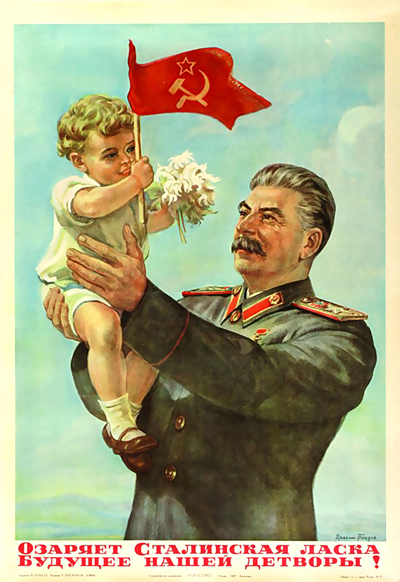Question is in the title. Where can I find information about gay and trans rights in the Soviet Union? Or if anyone would be able to share what they know. I understand it was decriminalized in 1917, but that’s about it.
I suppose sources about modern China and LGBTQ would be nice as well, post revolution and current.
Very hard to find trustworthy sources.


I have no sources on hand about USSR, but from what I recall, after the revolution they struck down a bunch of old Tsar-era laws which happened to include anti-homosexuality laws. So, it was not really done with homosexual rights in mind exactly. And then it was recriminalized, due to a common attitude of homosexuality being associated either with pedophilia and/or with the bourgeoisie. Meanwhile during the Red Scare in the U.S., gays were specifically investigated because they were seen as more likely to be communist (and were also accused of pedophilia)…I’d say my first impression is that it seems like homophobia was just the prevailing attitude of the time and people would associate homosexuality with whatever they were opposing, probably in some cases mistakenly and in some cases opportunistically.
Regarding present-day China:
Here is a video from 2019, Homosexuality in China. The lady in this channel is a member of the Communist Party of China and the guy is her husband who has studied Chinese philosophy. They speak in Spanish but there are English subs. They have another video from 2021: Does China Ban the LGBT movement?
Here are some quotes from them I have pulled and shortened from the transcript of “Homosexuality in China”:
The sex ed textbook they mention caused an online controversy when it began being used (protests from parents), but they say that a government newspaper came out in defense of the textbooks: “And this is when a second significant gesture by the government took place when the Huánqiú Shíbào newspaper (also known as the ‘global times’), an important medium of the Chinese state press, He got involved in the controversy to defend the content of the books.”
And here is some truncated quotes from “Does China Ban LGBT movements?”
They then talk about the textbook controversy again, and they explain that some LGBT WeChat groups were removed. To explain these things, they describe that there are some vocal anti-LGBT and anti-feminists online who lodge such complaints that lead to these kind of results:
They also describe that there are some anti-LGBT celebrities and there may be anti-LGBT people in the Party as well. They then say that there are also LGBT celebrities, using a transgender celebrity as an example. They also describe that in China there is an overall conservative attitude toward sex in media and that when these two vloggers themselves were younger, public displays of affection between all couples of all sexualities was discouraged in public universities (which they note, was an unpopular policy). They then speculate that the WeChat LGBT groups that got closed, seemingly by the government, may have had some influence from U.S. agents in them, which may be the reason they were closed, as other LGBT WeChat groups continue to exist.
They conclude this video by saying:
Generally, they describe a situation where LGBT people are not violently antagonized, but also do not enjoy the rights of marriage and adoption. There are socially conservative attitudes that they attribute mainly to Confucianism. So, they say that although there may be basic tolerance of homosexuality as a concept, the idea of a more serious and committed homosexual relationship (such as marriage) may face more rejection from one’s relatives due to the traditional cultural values, but note that these values aren’t hostile to the concept of LGBT, either.
They describe that LGBT people will often feel physically safe in China (i.e., safe from being attacked) but might face these kinds of social rejections when pursuing marriage and adoption. They also say that most LGBT people in China tend to have a hard time coming out of the closet due to these kind of family social pressures and often end up in situations where a gay guy and a lesbian will marry each other so that they can then legally adopt children and raise those children with their actual partners.
Please take this last bit with a grain of salt as it is just my personal observations. I have lived and travelled in a few Asian countries but I am not from Asia originally. I would say this description of the situation in China is pretty similar to what I have read/encountered in other East Asian countries in general in terms of the cultural attitude toward LGBT rights around the region. That is, people are not usually violently homophobic, but people on the socially conservative side tend to regard LGBT as something foreign, and/or something less serious or valid than heterosexual relationships. This is reflected by a typical legal situation of homosexuality being legal and trans healthcare being available, but gay marriage/adoption remaining illegal. I have also noticed a general socially conservative attitude (relative to the attitude I see in the U.S.) about sex in general, regardless of orientation, considering sex and sexuality to be a private matter. And, as you may expect, there are also supportive and pro-LGBT people around, too. Also, it should be noted that the Western expressions of LGBT identities and culture does not always match the local expressions of LGBT identities and culture which have their own characteristics, but also may be influenced by the Western LGBT movement(s) in some regards, too.
If you are interested, I made a post about LGBT rights in Vietnam a while ago: https://lemmygrad.ml/post/303794/comment/242153
If anyone has more knowledge than me on any of this or sees any mistakes or misconceptions perpetuated in what I have written here, I welcome your corrections.